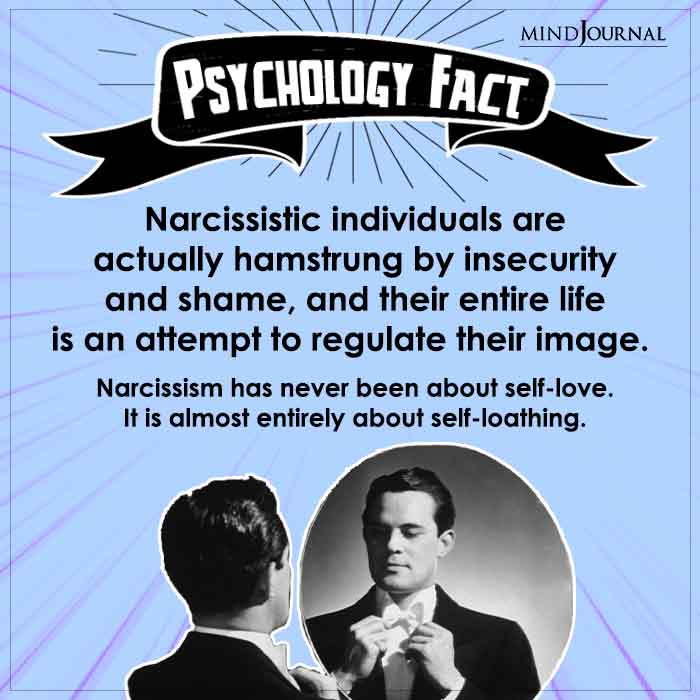Working with a narcissistic person can be nothing short of a living nightmare. However, the good news is that if you know what to do, and what NOT to do when engaging with them, you’ll have an easier time working with them. As long as you avoid making certain mistakes, you will be okay.
13 Common Mistakes To Avoid When Working With A Narcissist
Mistake 1 – Call A Narcissist A Narcissist To Their Face
Calling a narcissist a narcissist, no matter how true it may be, won’t help. Additionally, naming someone a narcissist is unprofessional unless you are a mental health practitioner who has been licensed and who has been provided with enough access to diagnose NPD (narcissistic personality order).
Mistake 2 – Call A Narcissist A Narcissist Behind Their Back
Again, this is indulgent and unprofessional. Instead, use facts.
- As I reviewed the recording of my presentation, I noted that Joe interrupted me 10 times mid-sentence. Do you have any advice?
- When I gave Sue the feedback questionnaire, she laughed and dumped it in the rubbish without looking at it. What are my options?
Related: 18 Signs Of A Narcissistic Co-Parent and How To Deal
Mistake 3 – Try To Reform The Narcissist
Stop trying to help the narcissist to see their problems and errors. Instead, work on your own responses and engagement. How can you respond calmly and firmly the next time the narcissist crosses your boundaries? How many deep breaths did you take before responding to the narcissist’s last round of excuses?
We are not suggesting that you tolerate workplace abuse; we are suggesting that you refuse to over-function by taking responsibility for buffering or moderating the narcissist’s poor behavior.

Mistake 4 – Report Problems Based On Feelings Instead Of Evidence
Whether your organization has a formal or informal feedback system, your observations will be better received if they are based on evidence rather than feelings.
Less Effective: It is extremely difficult to work with this person.
More Effective: This person has been late to work 20 out of the last 40 days.
Less Effective: Everyone avoids working on a team with this person.
More Effective: I created graphics for a presentation on Tuesday. On Thursday, this person used my graphics in a different meeting and insinuated that both the graphics and ideas were her own.
Mistake 5 – Make The Narcissist Think That Your Ideas Are Their Ideas
Although rubbing the ego of a narcissist is tempting (because it often works), most of us find this kind of coping behavior to be demeaning, dishonest, and disingenuous.
Tricking a narcissist into thinking your ideas are their ideas may work to promote your ideas, but it will not promote your mental health or self-respect. Using flattery to reduce a narcissist’s insecurity is a form of unhealthy enabling.
Related: Narcissistic Leaders — The Destructive Lies They Tell Themselves and Others
Mistake 6 – Give Feedback Alone
If you are in a situation to give a narcissist feedback, ask someone else to be with you. Narcissists do not usually take feedback well and may become angry, lash out at you personally, and seek revenge. To avoid a he-said-she-said situation, invite a third party to be in the room when you deliver feedback to a narcissist.
Mistake 7 – Give Feedback In A Large Group
Most people do not relish negative feedback given in a public setting or in front of a large group. Narcissists find such a situation especially humiliating and may be expected to react poorly.
Mistake 8 – Take Life Too Seriously
Better to laugh than to cry at the absurdities of life. When you have to deal with a toxic personality at work, your sense of humor can help limit their power to affect you. Be the bigger person. See the narcissist as weak and childish rather than scary and powerful. Meditation may be a powerful tool for changing your paradigm.
Mistake 9 – Get Personal
Aim to be the ultimate professional. Stay calm under pressure. Engage respectfully and politely. Get HR or a negotiator involved when needed. It may seem that the narcissist is out to get you personally, but actually, the narcissist treats anyone and everyone in similar ways.
The narcissist, by definition, will flatter people who they see as higher than them and exploit people they view as lower than them.
Mistake 10 – Try To Win Points With The Narcissist By Sharing Dirt About Somebody Else
A narcissist will initially reward you for privileged information. In the long run, however, do you want to have stronger ties to the narcissist than to other workmates? It’s better to spend your time nurturing relationships with others than with the narcissist, even if these relationships are not up the hierarchical chain in your organization.
Related: A 3-Step Guide To Get Your Narcissistic Boss To Like You
Mistake 11 – Be Manipulatable
By definition, a narcissist is a manipulator. And, hard as it may be to hear, a manipulator has no power with someone who refuses to be manipulated. Narcissists need co-narcissists. Narcissists gravitate toward people who are easily manipulated and avoid people who are not easily manipulated.
Mistake 12 – Record The Narcissist Without Permission
You want hard evidence against a narcissist, and he or she is blowing up on the phone. Can you record the call and give it to your HR department? You may legally record a phone call if it is only for personal use, but to use the recording as evidence you may need express permission from all parties.
Policies around recording verbal interactions and phone calls are different than rules around email and social media posts. Email and social media posts may be freely collected and used as evidence in an organizational setting and even in court.
Mistake 13 – Fall For A Narcissist’s Flattery
The difference between a narcissist and a poor-tempered person is that a narcissist uses manipulation and exaggeration to exploit others. Narcissists usually resort to poor-tempered behavior only if things don’t go their way.
If a narcissist views you as a boss, he or she may be flattering you at the same time he or she is mistreating co-workers in situations you can’t easily observe. If a narcissist views you as a sidekick, he or she may be grooming you by appealing to your desire to be attached to a strong and opinionated person. Don’t fall for flattery; aim for well-balanced relationships.
Related: 7 Common Myths About Narcissistic Personality Disorder
In conclusion, it is impossible to underestimate the frustration that many of us experience when one of our work associates exhibits a high narcissistic profile. Avoiding these 13 common mistakes will be an initial strategy, a scaffold upon which to build through experience, asking for the help you need along the way.
Written By Rebecca Zung Originally Appeared On Rebecca Zung










Leave a Reply
You must be logged in to post a comment.